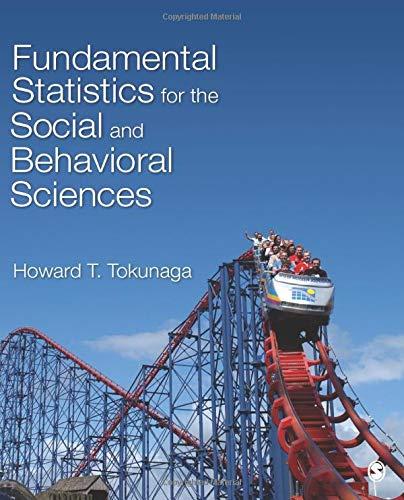Students applying to graduate schools in many disciplines are required to take the Graduate Record Examination (GRE);
Question:
Students applying to graduate schools in many disciplines are required to take the Graduate Record Examination (GRE); essentially, it is the graduate school equivalent of the SAT. Let's say an enterprising student develops a course she believes will increase students' GRE scores. She develops a sample of 25 students believed to be representative of the larger college student population and puts them through this course. Next, they take the GRE and receive a mean score of 1075.00. Assuming the GRE has a population mean \((\mu)\) of 1,000 and a standard deviation \((\sigma)\) of 200 , does the course appear to significantly increase GRE scores?
a. State the null and alternative hypotheses \(\left(\mathrm{H}_{0}\right.\) and \(\left.\mathrm{H}_{1}\right)\) (allow for the possibility that the average GRE score may be less than 1,000 ).
b. Make a decision about the null hypothesis.
1. Set alpha (a), identify the critical values, and state a decision rule.
2. Calculate a statistic: \(z\)-test for one mean.
3 Make a decision whether to reject the null hypothesis.
4. Determine the level of significance.
c. Draw a conclusion from the analysis.
d. Relate the result of the analysis to the research hypothesis.
Step by Step Answer:

Fundamental Statistics For The Social And Behavioral Sciences
ISBN: 9781483318790
1st Edition
Authors: Howard T. Tokunaga





